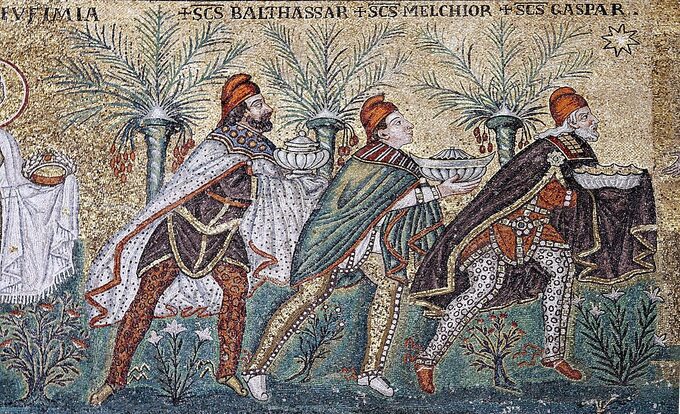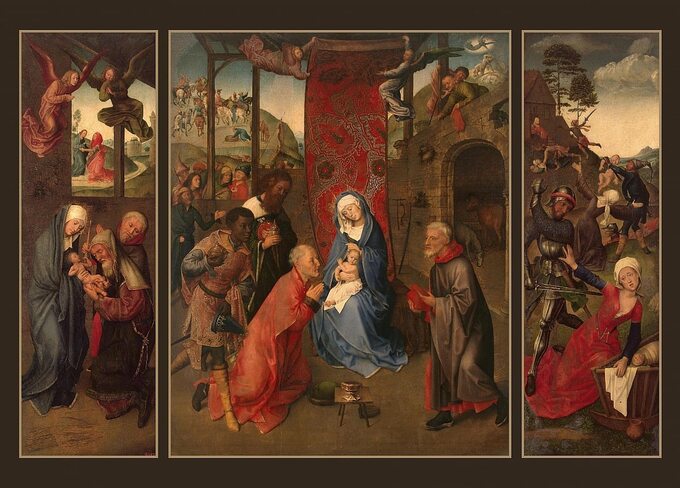Epiphany, Epiphany, is a holiday that we usually call Epiphany. However, the significance of this celebration is much greater than the celebration of the wise men's arrival in Bethlehem, where the Savior was born.
Revelation
Epiphany is the second oldest holiday in the Church, after the Resurrection of the Lord. Therefore, this holiday is celebrated even longer than Christmas. The first mention of the celebration of Epiphany in the Eastern Church appeared around 212 in the writings of Clement of Alexandria. The first information in the West comes from 361. St. Augustine notes the extremely important significance of the Annunciation and writes that it is “the double feast of the Nativity of the Lord.”

The word epiphany comes from the Greek (Epiphany) and means revelation, i.e. the appearance of God to man as it is visible to man, perceptible by human senses. During his earthly life, Jesus Christ repeatedly “performed signs” by which his disciples could recognize his divinity (St. John wrote: “This is the beginning of the signs that Jesus performed in Cana of Galilee. He manifested his glory, and his disciples believed in him.”).
The Church particularly points to three events in the life of Jesus when his divinity was fully revealed. The first is the worship of the Wise Men of the East, who came from distant lands to Bethlehem under the guidance of a star. Although they were pagans, it was revealed to them that somewhere in the world a Savior would be born. The second event is the baptism of Jesus in the Jordan River by John the Baptist. The third is the miracle at Cana of Galilee. Gregory of Nazianzus, who lived in the 4th century, explained that these three revelations or miracles that God showed to man had different dimensions, although they had a common denominator. The revelation of the truth about the man of God born in Bethlehem reached the Gentiles, people who knew nothing about the Messiah, showing that God had decided to appear to people beyond the chosen people. At the wedding in Cana, Jesus revealed his divinity to his disciples and other Jews by turning water into wine. At the baptism in the Jordan, God revealed His divinity in the Holy Trinity.

In 1979, John Paul II spoke of the essence of Epiphany like this: “Your heart will be moved and enlarged,” Isaiah says to Jerusalem. (…) This cry of the prophet is the main speech of the Epiphany. On this feast, the Church thanks God for the gift of faith, which has become and is shared by so many peoples, peoples and nations. Three men from the East, the Magi, who came to the stable in Bethlehem, were among the first to witness this gift and bear it. Faith finds its transparent expression in them, as the inner opening of a person, as a response to the light, to God's epiphany. In this openness to God, man is eternally striving for self-realization. Faith is the beginning of this fulfillment and its condition. (…) We should let the Magi go to Bethlehem. To them goes every man who recognizes as the definition of his humanity the truth of the openness of the soul to God, the truth expressed in the phrase: altiora te quaeras! (Look for objects higher than you). The Church becomes itself when people – like the shepherds and the three kings from the East – come to Jesus Christ by faith. When they find God in Christ, in man, and through Christ. Therefore, Epiphany is a great celebration of faith.
*
During the church celebrations on Epiphany, the priest blesses the incense and chalk. In some countries water is also blessed on January 6 and then sprinkled over your house. In Poland, we know the custom of roasting the flat with blessed spices. On the door we also write the initials K + M + B, which probably come from the names of three kings: Casper, Melchior and Balthazar. You can also find the spelling C + M + B, which is of older origin and means “Christus mansionem benedicat”, that is: “May Christ bless this apartment”. On January 6 in Poland, especially in recent years, the organization of Epiphany service is becoming more and more popular.
Also read:
Moving, reflective, funny. Nativity of the Lord in paintingAlso read:
Saint John the Apostle and Apocalypse IslandAlso read:
Did the new year always start on January 1? Where did New Year's Eve come from?
